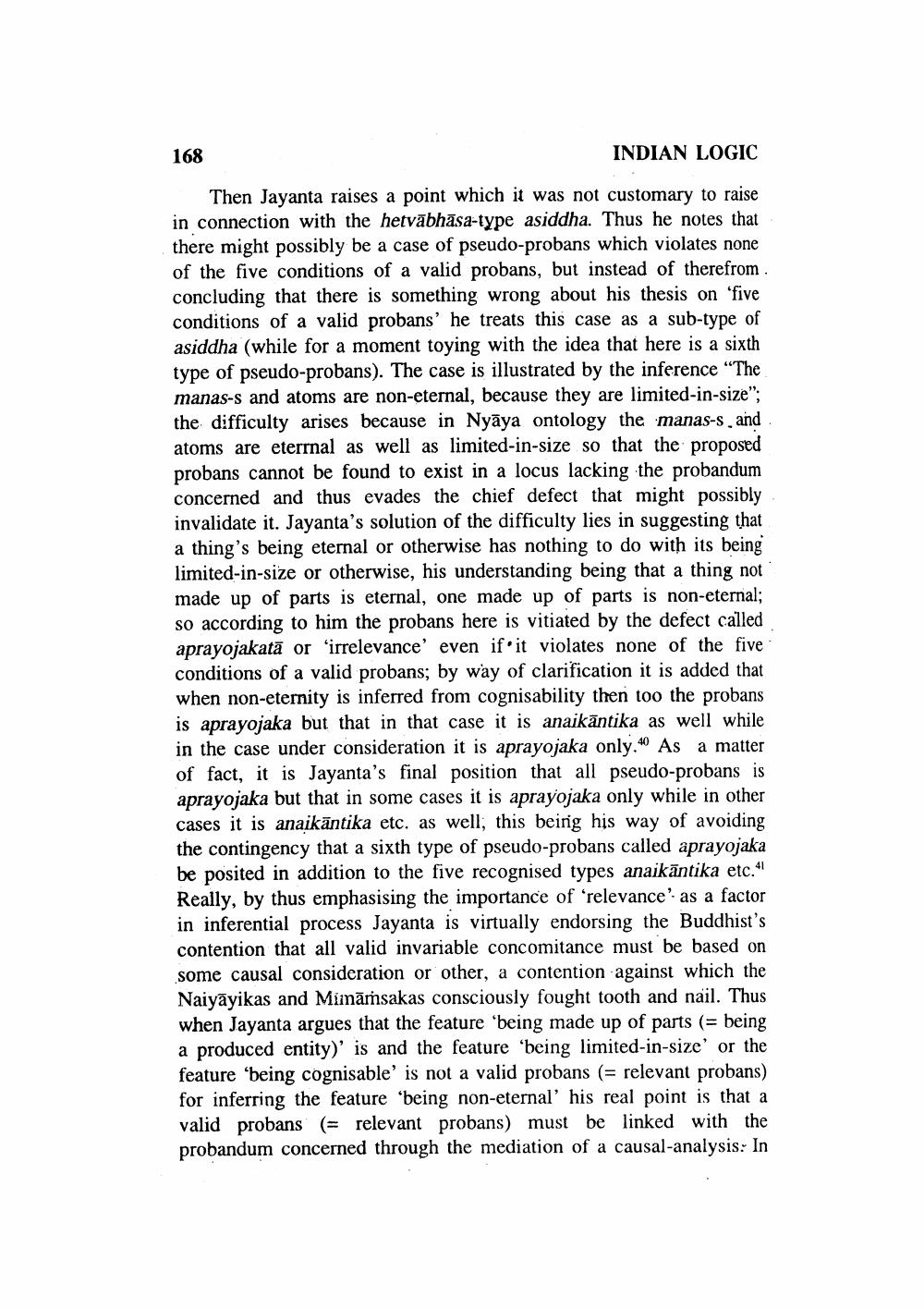________________
INDIAN LOGIC
Then Jayanta raises a point which it was not customary to raise in connection with the hetvabhasa-type asiddha. Thus he notes that there might possibly be a case of pseudo-probans which violates none of the five conditions of a valid probans, but instead of therefrom. concluding that there is something wrong about his thesis on 'five conditions of a valid probans' he treats this case as a sub-type of asiddha (while for a moment toying with the idea that here is a sixth type of pseudo-probans). The case is illustrated by the inference "The manas-s and atoms are non-eternal, because they are limited-in-size"; the difficulty arises because in Nyaya ontology the manas-sand atoms are eternal as well as limited-in-size so that the proposed probans cannot be found to exist in a locus lacking the probandum concerned and thus evades the chief defect that might possibly invalidate it. Jayanta's solution of the difficulty lies in suggesting that a thing's being eternal or otherwise has nothing to do with its being limited-in-size or otherwise, his understanding being that a thing not made up of parts is eternal, one made up of parts is non-eternal; so according to him the probans here is vitiated by the defect called aprayojakatä or 'irrelevance' even if it violates none of the five conditions of a valid probans; by way of clarification it is added that when non-eternity is inferred from cognisability then too the probans is aprayojaka but that in that case it is anaikantika as well while in the case under consideration it is aprayojaka only.40 As a matter of fact, it is Jayanta's final position that all pseudo-probans is aprayojaka but that in some cases it is aprayojaka only while in other cases it is anaikäntika etc. as well, this being his way of avoiding. the contingency that a sixth type of pseudo-probans called aprayojaka be posited in addition to the five recognised types anaikäntika etc." Really, by thus emphasising the importance of 'relevance as a factor in inferential process Jayanta is virtually endorsing the Buddhist's contention that all valid invariable concomitance must be based on some causal consideration or other, a contention against which the Naiyayikas and Mimämsakas consciously fought tooth and nail. Thus when Jayanta argues that the feature 'being made up of parts (= being a produced entity)' is and the feature 'being limited-in-size" or the feature 'being cognisable' is not a valid probans (= relevant probans) for inferring the feature 'being non-eternal' his real point is that a valid probans ( relevant probans) must be linked with the probandum concerned through the mediation of a causal-analysis: In
168




